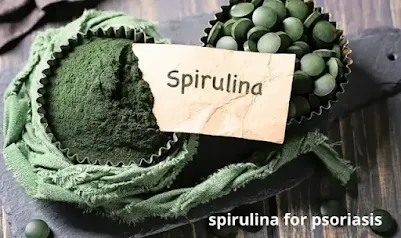If so, then you may want to consider adding spirulina to your routine.
In this blog post, we’ll discuss the potential benefits of taking spirulina for psoriasis and some tips for getting started.
Benefits of spirulina for psoriasis
1. psoriasis is a chronic autoimmune disease that can be very frustrating. It is estimated that there are over 15 million people in the United States who suffer from psoriasis. The disease is usually characterized by patches of thick, red, scaly skin.2. Although there is no cure for psoriasis, there are many treatments available that can help reduce the severity of the condition. One of the most popular treatments is spirulina. Spirulina is a natural food supplement that is densepacked with vital nutrients. It is completely safe to be consumed in the long term and has been shown to be.
3. spirulina may be able to help reduce inflammation and improve the symptoms of the disease. If you are struggling with psoriasis and are looking for a natural supplement that may help you, spirulina may be a good choice for you.
How Spirulina Can Help Reduce Inflammation Associated with Psoriasis
Spirulina is a nutrient-rich microalga that has been shown to have a number of benefits for skin conditions such as psoriasis.1. Spirulina can help reduce inflammation associated with the disease, and has been shown to be effective in treating mice with psoriasis. Additionally, spirulina may help reduce the risk of cataracts and other eye health problems.
2. In conclusion, spirulina is a powerful ally for people with psoriasis and should be included as part of a holistic treatment plan.
Read also: Spirulina for acne.
Is spirulina good for skin problems
- psoriasis is a chronic inflammatory skin that affects many people around the world. The exact cause of psoriasis is still unknown, but it is thought to arise from disorders arising from the body's immune system.
- Spirulina is a great immunity booster thanks to its rich content of nutrients and minerals, including sulfur-rich vegetables in your diet.
- Studies have shown that spirulina can help reduce the presence of psoriasis in mice. Additionally, spirulina's antifungal, antibacterial, and anti-inflammatory effects could potentially help with conditions like psoriasis and eczema.
- If you are looking for a natural supplement that can help improve your skin health, spirulina is a good option to consider.
Spirulina and psoriasis
Spirulina is a type of blue green algae- a natural food supplement with densely packed easy-to-digest cells.This microscopic algae is known to be a great immune booster thanks to its rich antioxidants and minerals.
In addition to its immune-boosting properties, Spirulina has been shown to be effective in accelerating the healing process when used in the long term.
Some of the benefits of Spirulina for psoriasis include reducing inflammation associated with the skin condition, improving skin texture and reducing the presence of psoriasis in mice.
While Spirulina cannot be considered a cure for psoriasis, it can help accelerate the healing process when used in the long term.
If you are suffering from psoriasis, adding Spirulina to your diet may be a good idea. For those interested in learning more about Spirulina and its benefits for psoriasis.
Read also: Spirulina for eczema.
Spirulina face mask for psoriasis
If you are looking for a natural remedy to help reduce the appearance of psoriasis, spirulina may be a good option for you.Spirulina is a nutrient-rich algae that has been shown to help reduce inflammation and improve skin conditions in mice.
In fact, a study published in the journal 2020 showed that spirulina helped to reduce the presence of psoriasis in mice.
Since psoriasis is an autoimmune disease, the benefits of spirulina for psoriasis may also extend to people who suffer from the condition.
If you are interested in trying spirulina for psoriasis, we recommend that you speak with your doctor first. However, if you are already using spirulina as part of your skincare routine, it may be helpful to know that it can help reduce redness and relieve sensitivities such as eczema, psoriasis, and acne.
Additionally, spirulina can work with other skincare products to treat skin issues like eczema, acne, and a damaged barrier.
So if you're looking for a natural remedy to help reduce the appearance of psoriasis, adding spirulina to your skincare routine may be a good option. In addition, if you're suffering from any other skin conditions, adding spirulina to your diet may help improve your symptoms. So why not give it a try? You may be surprised at the results!
Ref: https://2u.pw/9MXd5q.


.webp)
